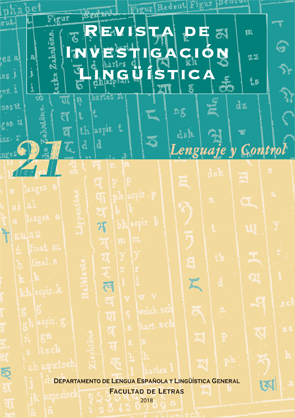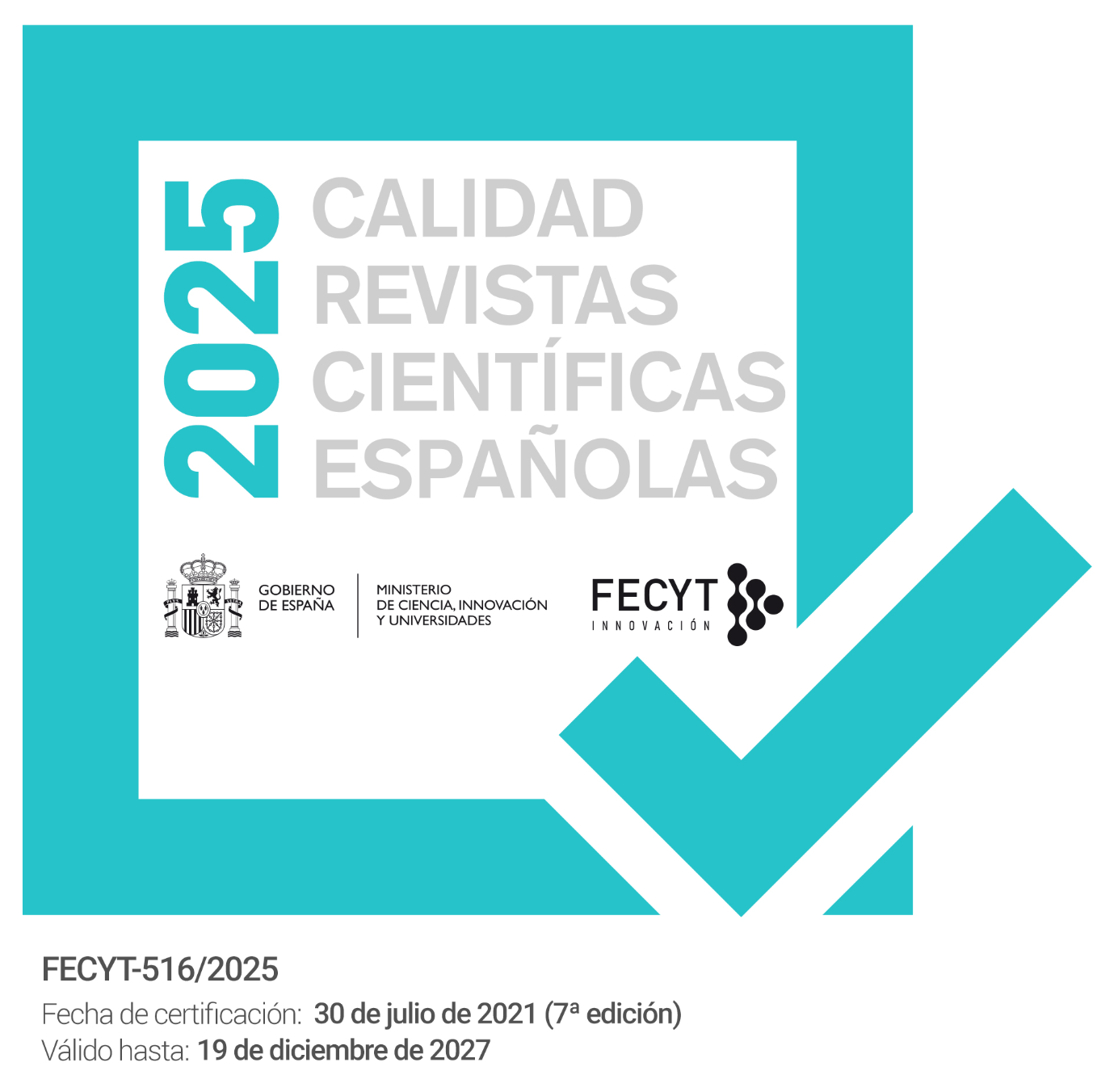Three dimensions in the analysis of variation of (im)politeness
Abstract
The present paper argues that studies on intercultural variation of (im)politeness should not conceive the cultural environments analysed as homogeneous and monolithic blocks. On the contrary, these studies should take into account the internal variation inherent to those cultures, at both a social and a situational level. From this perspective, We analyse the characteristics and connections between the three dimensions of pragmatic variation (cultural, social and situational) that are proposed. Our aim is to ascertain the suitability of a research model which does not renounce the formulation of interculturally differentiated patterns, but which generates them in a dynamic way, being able to gather the nuances of variation which are dependent on social and situational variables.
Downloads
-
Abstract1438
-
PDF (Español (España))722
References
AIJMER, K. (2015): “‘Will you fuck off please’. The use of please by London teenagers”. Sociocultural Pragmatics, 3, 127-149.
ALBELDA MARCO, M. y M. J. BARROS GARCÍA (2013): La cortesía en la comunicación. Madrid: Arco/Libros.
ALBELDA MARCO, M. (2008): “Influence of situational factors in the codification and interpretation of impoliteness (Influencia de los factores situacionales en la codificación e interpretación de la descortesía)”. Pragmatics, 18, 751-773.
BALLESTEROS MARTÍN, F. J. (2001): “La cortesía española frente a la cortesía inglesa. Estudio pragmalingüístico de las exhortaciones impositivas”. Estudios Ingleses de la Universidad Complutense, 9, 171-207.
BARONI, M. R. y V. D’URSO (1984): “Some experimental findings about the question of politeness and women’s speech (Research note)”. Language in Society, 13, 67-72.
BARROS GARCÍA, M. J. (2011): La cortesía valorizadora en la conversación coloquial española: estudio pragmalingüístico. Tesis doctoral. Universidad de Granada.
BERNAL, M. (2008): “Do insults always insult? Genuine politeness versus non-genuine politeness in colloquial Spanish (¿Insultan los insultos? Descortesía auténtica vs. descortesía no auténtica en el español coloquial)”. Pragmatics, 18, 775-802.
BRAVO, D. (2001): “Sobre la cortesía lingüística, estratégica y conversacional en español”. Oralia, 4, 299-314.
BRAVO, D. (2003): “Actividades de cortesía, imagen social y contextos socioculturales: una introducción”. En D. Bravo (ed.), Primer Coloquio del Programa EDICE. La perspectiva no etnocentrista de la cortesía: identidad sociocultural de las comunidades hispanohablantes. Estocolmo: Universidad de Estocolmo, 98-108.
BRAVO, D. (2008): “The implications of studying politeness in Spanish-speaking contexts: a discussion (Las implicaciones del estudio de la cortesía en contextos del español. (Una discusión)”. Pragmatics, 18, 577-603.
BRIZ, A. (2003): “La estrategia atenuadora en la conversación cotidiana española”. En D. Bravo (ed.), Primer Coloquio del Programa EDICE. La perspectiva no etnocentrista de la cortesía: identidad sociocultural de las comunidades hispanohablantes. Estocolmo: Universidad de Estocolmo, 17-46.
BRIZ, A. (2004): “Cortesía verbal codificada y cortesía verbal interpretada en la conversación”. En D. Bravo y A. Briz (eds.), Pragmática sociocultural: estudios sobre el discurso de cortesía en español. Barcelona: Ariel, 67-93.
BRIZ, A. (2007): “Para un análisis semántico, pragmático y sociopragmático de la cortesía atenuadora en España y América”. Lingüística Español Actual, 29, 5-44.
BROWN, P. y S. C. LEVINSON (1978): “Universals in language usage: politeness phenomena”. En E. N. Goody (ed.), Questions and Politeness: Strategies in Social Interaction. Cambridge: Cambridge University Press, 56-311.
BROWN, P. y S. C. LEVINSON (1987): Politeness. Some Universals in Language Use. Cambridge: Cambridge University Press.
BRUMARK, A. (2006): “Regulatory talk and politeness at the family dinner”. Pragmatics, 16, 171-211.
DUMITRESCU, D. (2011): Aspects of Spanish Pragmatics. Nueva York: Peter Lang.
FERNÁNDEZ GARCÍA, F. (2012): “Comunicación y cultura: claves contrastivas”. En F. Fernández García, C. Conti Jiménez, E. Felíu Arquiola y M. Torres Martínez (eds.), Lenguas e inmigración en la ciudad de Jaén. Barcelona: Octaedro, 289-315.
FERNÁNDEZ GARCÍA, F. (2016a): “Hacia un análisis de la variación cultural, social y situacional en la percepción de la (des)cortesía”. En A. M. Bañón Hernández, M. M. Espejo Muriel, B. Herrero Muñoz-Cobo y J. L. López Cruces (eds.), Oralidad y análisis del discurso. Almería: Universidad de Almería, 223-238.
FERNÁNDEZ GARCÍA, F. (2016b): “Bases teóricas para un estudio transcultural y variacionista de la (des)cortesía”. Estudios de Lingüística. Universidad de Alicante, 30, 79-100.
GRAINGER, K. (2011): “‘First order’ and ‘second order’ politeness: Institutional and intercultural contexts”. En Linguistic Politeness Research Group, Discursive Approaches to Politeness. Berlín: De Gruyter, 167-188.
HAVERKATE, H. (2003): “El análisis de la cortesía comunicativa: categorización pragmalingüística de la cultura española”. En D. Bravo (ed.), Primer Coloquio del Programa EDICE. La perspectiva no etnocentrista de la cortesía: identidad sociocultural de las comunidades hispanohablantes. Estocolmo: Universidad de Estocolmo, 60-70.
HERNÁNDEZ FLORES, N. (1999): “Politeness Ideology in Spanish colloquial conversation; the case of advice”. Pragmatics, 9, 37-49.
HERNÁNDEZ FLORES, N. (2003): “Cortesía y contextos socioculturales en la conversación de familiares y amigos”. En D. Bravo (ed.), Primer Coloquio del Programa EDICE. La perspectiva no etnocentrista de la cortesía: identidad sociocultural de las comunidades hispanohablantes. Estocolmo: Universidad de Estocolmo, 121-127.
HERNÁNDEZ LÓPEZ, M. y M. E. PLACENCIA (2004): “Modos de conducir las relaciones interpersonales en interacciones de atención al público: el caso de las farmacias en Sevilla y Londres”. Estudios de Lingüística. Universidad de Alicante, 18, 129-150.
HICKEY, L. (1991): “Comparatively polite people in Spain and Britain”. Association for Contemporary Iberian Studies, 4, 2-7.
HICKEY, L. (2005): “Politeness in Spain: Thanks But No ‘Thanks’”. En L. Hickey y M. Stewart (eds.), Politeness in Europe. Clevedon: Multilingual Matters, 317- 330.
HOLMES, J. (1995): Women, Men and Politeness. Londres: Longman.
HOLMES, J. (2013): An Introduction to Sociolinguistics. 3.ª ed. Harlow: Pearson.
HOLMES, J. y M. STUBBE (2003): Power and politeness in the workplace: a sociolinguistic analysis of politeness in the workplace. Londres: Longman.
KÁDÁR, D. Z. y M. HAUGH (2013): Understanding Politeness. Cambridge: Cambridge University Press.
KAUL DE MARLANGEON, S. (2005): “Descortesía intragrupal-crónica en la interacción coloquial de clase media baja del español rioplatense”. En J. Murillo Medrano (ed.), Actas del II Coloquio del Programa EDICE. Estocolmo-Costa Rica: Universidad de Estocolmo-Universidad de Costa Rica, 165-179.
KERBRAT-ORECCHIONI, C. (2004): “¿Es universal la cortesía?” En D. Bravo y A. Briz (eds.), Pragmática sociocultural: estudios sobre el discurso de cortesía en español. Barcelona: Ariel, 39-53.
KERBRAT-ORECCHIONI, C. (2005): “Polinteness in France: How to buy bread politely”. En L. Hickey y M. Stewart (eds.), Politeness in Europe. Clevedon: Multilingual Matters, 29-44.
LAKOFF, R. (1973): “The Logic of Politeness, or Minding your P’s and Q’s”. Proceedings of the Ninth Regional Meeting of the Chicago Linguistic Society, 345-356.
LEECH, G. N. (1983): Principles of Pragmatics. Londres: Longman LORENZO-DUS, N. (2001): “Compliment responses among British and Spanish university students”. Journal of Pragmatics, 33, 107-127.
MILLS, S. (2003): Gender and Politeness. Cambridge: Cambridge University Press.
MILLS, S. (2005): “Gender and impoliteness”. Journal of Politeness Research, 1, 263-280.
MILLS, S. (2011): “Discursive approaches to politeness and impoliteness”. En Linguistic Politeness Research Group, Discursive Approaches to Politeness. Berlín: De Gruyter, 19-56.
MILLS, S., y D. Z. KÁDÁR (2011): “Politeness and culture”. En D. Z. Kádár y S. Mills (eds.), Politeness in East Asia. Cambridge: Cambridge University Press, 21-44.
OGIERMANN, E. (2009): On Apologising in Negative and Positive Politeness Cultures. Ámsterdam: John Benjamins.
PABLOS ORTEGA, C. de (2015): “Thank you for a lovely day! Contrastive Thanking in Textbooks for Teaching English and Spanish as Foreign Languages”. Sociocultural Pragmatics, 3, 150-173.
RODRÍGUEZ ALFANO, L. y E. JIMÉNEZ MARTÍN (2014): “La variable social en el halago. Aplicación de un test de hábitos sociales en la comunidad de Monterrey”. En M. E. Flores Treviño y J. M. Infante Bonfiglio (eds.), La (des)cortesía en el discurso. Perspectivas interdisciplinarias (imagen, actos de habla y atenuación). Monterrey-Estocolmo: Universidad Autónoma de Nuevo León-Programa Edice, 297-322.
SCHNEIDER, K. P. (2012): “Appropriate behaviour across varieties of English”. Journal of Pragmatics, 44, 1022-1037.
SIFIANOU, M. (1992): Politeness Phenomena in England and Greece. A Cross-Cultural Perspective. Oxford: Clarendon Press.
STENSTRÖM, A. B. y A. M. JØRGENSEN (2008): “La función fática de los apelativos en el habla juvenil de Madrid y Londres”. En A. Briz, A. Hidalgo, M. Albelda, J. Contreras y N. Hernández Flores (eds.), Cortesía y conversación: de lo escrito a lo oral. III Coloquio internacional del Programa Edice. Valencia: Universidad de Valencia/Programa Edice, 355-365.
STEWART, M. (2005): “Politeness in Britain: ‘It’s Only a Suggestion…’”. En L. Hickey y M. Stewart (eds.), Politeness in Europe. Clevedon: Multilingual Matters, 116-128.
SUNG, C. C. M. (2012): “Exploring the interplay of gender, discourse, and (im)politeness”. Journal of Gender Studies, 21, 285-300.
SWANN, J. (2009): “Gender and language use”. En R. Mesthrie, J. Swann, A. Deumert y W. L. Leap, Introducing Sociolinguistics. 2.ª ed. Edimburgo: Edinburgh University Press, 213-241.
TAKANO, S. (2005): “Re-examining linguistic power: strategic uses of directives by professional Japanese women in positions of authority and leadership”. Journal of Pragmatics, 37, 633-666.
WIERZBICKA, A. (2003): Cross-Cultural Pragmatics. The Semantics of Human Interaction. 2.ª ed. Berlín: Mouton de Gruyter.
ZIMMERMANN, K. (2003): “Constitución de la identidad y anticortesía verbal entre jóvenes masculinos hablantes de español”. En D. Bravo (ed.), Actas del Primer Coloquio del Programa Edice. Estocolmo: Universidad de Estocolmo, 47-59.
The works published in this magazine are subject to the following terms:
1. The Publications Service of the University of Murcia (the publisher) preserves the economic rights (copyright) of the published works, and favors and allows the reuse of same under the license of use indicated in point 2.
2. The papers are published in the electronic edition of the magazine under a Creative Commons Attribution-NonCommercial-NoDerivative 3.0 Spain license (legal text). Papers may be copied, used, disseminated, transmitted and publicly exhibited if the following requirements are met: i) The authorship and the original source of its publication (magazine, editorial and URL of the work) must be cited; ii) The works cannot be used for commercial purposes; iii) The existence and specifications of this user license must be explicitly mentioned.
3. Self-archiving conditions. Authors can electronically disseminate pre-print versions (version before being evaluated) and / or post-print versions (version evaluated and accepted for publication). This makes possible its circulation and diffusion earlier and with it a possible increase in its citation and reach among the academic community. RoMEO color: green.










